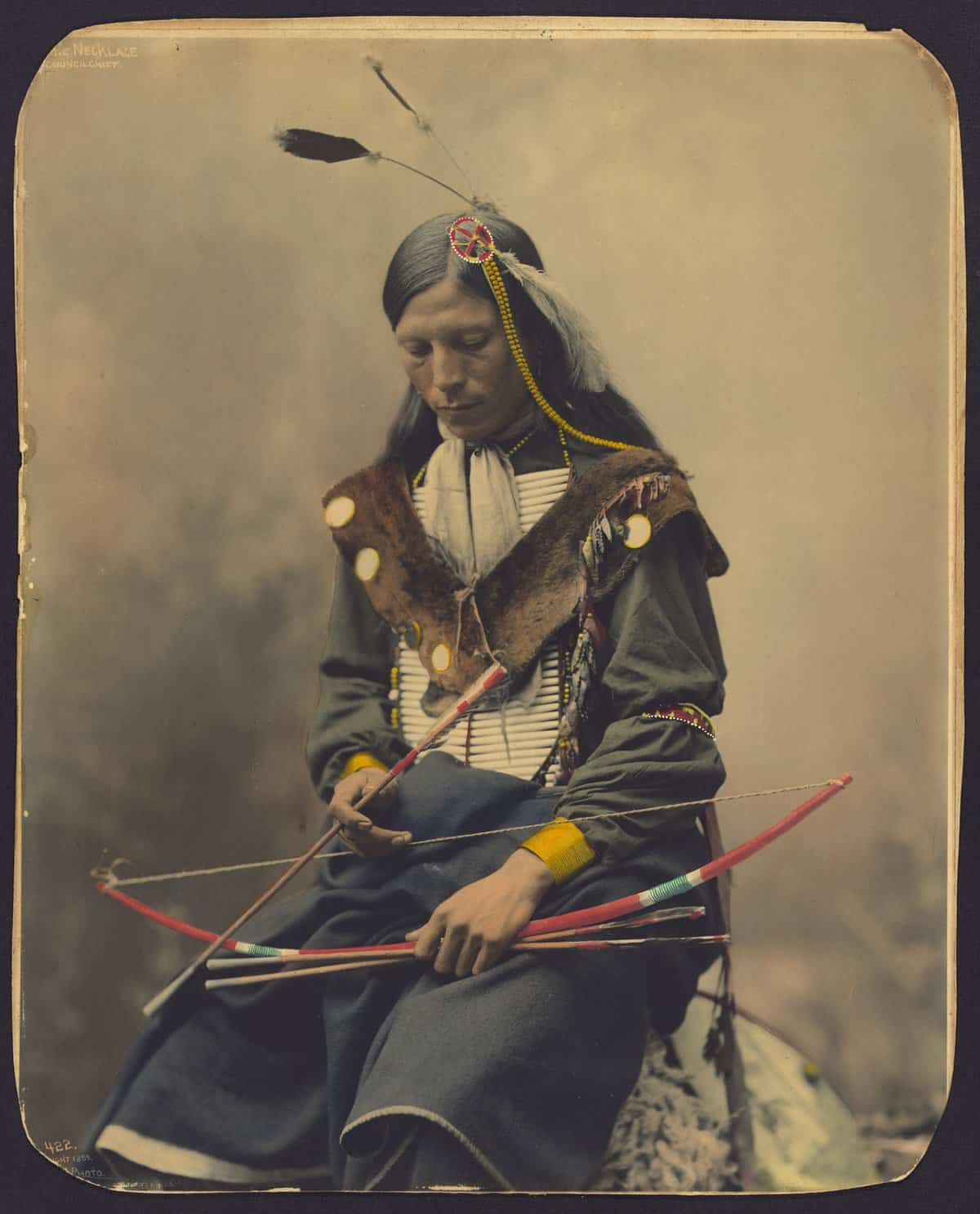
Today’s political climate is filled with hate, racism, and bigotry towards various cultural, ethnic, and social minority groups. Christians should be alarmed at such rhetoric and take seriously the notion that elected officials can, will, and do oppress people based on their religion, beliefs, race, and cultural identity.
Legislating hate has been historically common in America, and if followers of Jesus don’t act according to his instructions to love our neighbors as ourselves and help the alienated, poor, and oppressed, our country’s brutal and embarrassing habit of political persecution will continue to repeat itself.
By using fear-mongering tactics, politicians and their followers assume the worst of particular groups and use hyperbole and even made-up anecdotes to validate suspicions, defend stereotypes, rationalize vitriol, and reinforce misinformed ideas.
A brief glimpse into our nation’s history shows us how susceptible even Christians are to such foolish political dogma.
The atrocities committed against Native Americans by the US Government and their citizens are now universally considered a tragedy, but greed combined with panic-inducing propaganda fueled a society to wage war against a predominantly peaceful population.
President Thomas Jefferson helped inspire such populous sentiment by making statements such as: “If ever we are constrained to lift the hatchet against any tribe, we will never lay it down till that tribe is exterminated, or driven beyond the Mississippi . . . in war, they will kill some of us; we shall destroy them all.”
President Andrew Jackson disguised evil legislation such as the Indian Removal Act by rationalizing dehumanization. He did this by offering “explanations” to why such actions were necessary:
My original convictions upon this subject have been confirmed by the course of events for several years, and experience is every day adding to their strength. That those tribes cannot exist surrounded by our settlements and in continual contact with our citizens is certain. They have neither the intelligence, the industry, the moral habits, nor the desire of improvement which are essential to any favorable change in their condition. Established in the midst of another and a superior race, and without appreciating the causes of their inferiority or seeking to control them, they must necessarily yield to the force of circumstances and ere long disappear.
Despite its blatant barbarism, many self-proclaimed Christian politicians voted to narrowly pass the Indian Removal Act, and even though many missionaries decried it, only one Christian denomination (American Baptist) officially condemned the legislation, which would ultimately send thousands to their death.
Throughout this era, stories of “Indian raids” and “scalpings” drove public sentiment against Native Americans, despite being inaccurate, and the imminent threat of national security has been used as an excuse to violate human rights ever since.
But Native Americans weren’t the only victims of political vilification.
Today’s anti-immigration, anti-refugee, and anti-Muslim movements are eerily similar to the Nativist Movements that plagued the 1800s. These periods of time were defined by economic and political fears that scapegoated foreigners for many of the country’s perceived problems.
A political party named the American Party was formed on the platform of being largely anti-immigrant and anti-Catholic, even suspecting Catholics of plotting with the Pope to undermine the United States and eventually put it under their religious rule.
Despite fleeing the desperate conditions of the Potato Famine that would kill hundreds of thousands of people, new immigrants arriving in the US were treated with hate and violence.
These xenophobic political groups used patriotic fervor to cloak their hostility, and they lobbied for immigrants to wait years before being eligible to vote and wanted only native-born Americans to be allowed into government offices. They gained so much national support that they eventually sent their own candidate—Millard Fillmore—to run for President.
Does any of this sound familiar?
Not only did most Christians refuse to act or speak out against such evil behavior, but many also contributed greatly to the Nativist cause, even starting a publication called the Protestant that helped inspire the very beginnings of the Nativist movement.
The United States also has a long history of discriminatory legislation based on skin color, and the 1896 court ruling in Plessy v. Ferguson guaranteed institutionalized racism and inequality for decades to come, with repercussions still being felt today.
Again, although some Christians—especially African Americans—protested against such laws, many—especially privileged white Christians—supported them, and even prominent evangelists such as Bob Jones promoted—using the Bible to defend his claims—the idea that people of different skin color should be kept separate from each other. Bob Jones University, the school he originally founded, once used “Christian beliefs” in order to rationalize their interracial policy, explaining:
God has separated people for his own purposes. He has erected barriers between the nations, not only land and sea barriers, but also ethnic, cultural, and language barriers. God has made people different from one another and intends those differences to remain. Bob Jones University is opposed to intermarriage of the races because it breaks down the barriers God has established.
The school continued prohibiting interracial dating until 2000, but weaponizing the Christian faith to condone hate and oppression continues to be a tactic used by both politicians and Christians alike.
Another example of our nation’s penchant for racial and cultural animosity is when President F.D. Roosevelt signed Executive Order 9066 during WWII, forcing tens of thousands of Japanese-Americans into internment camps. There’s little evidence that shows American churches did anything other than go along with society and silently condone such cruelty.
Unfortunately, race and ethnicity aren’t the only historical factors that inspire hate.
Christian institutions were also staunch opponents of the early Women’s Suffrage movement, and even today many Christians continue to bar women from pastoral and leadership roles.
Christians also supported—and continue to support—political initiatives attacking the LGBTQ community, with many religious groups lobbying for legislation that aggressively seeks to eliminate and restrict their rights.
Today, Christians are complexly divided about almost every political platform, but there continues to be a disturbing silence and passivity from Christian denominations, leaders, theologians, businesses, communities, churches, and organizations concerning the blatant inhumane rhetoric being spewed from political leaders and their supporters.
If followers of Jesus aren’t going to protect and defend the rights of the immigrants, the refugees, the oppressed, the abused, the poor, the voiceless, the alienated, and those who are being ruthlessly mistreated and taken advantage of, who will?
It’s naive to assume our society is free from the sins of racism, bigotry, xenophobia, and inequality, and it’s dangerous to assume that our nation will never again allow hundreds of thousands of people to be rounded up and sent to camps in order to be kicked out of the country—in fact, it’s already happening.
There’s a massive deportation system in place under the guise of national security, and like the previous historic examples mentioned above, it’s completely legal, but the process is invisible to us, where women and children are taken from families, sit in immigration detention camps hidden from the public’s view, and are deported back to environments full of violence, abuse, and poverty.
But all of this—heartless policies, laws that benefit the privileged, domineering exploitation, and the viral fear of and animosity towards others—is within our corporate power to stop, and it’s a lie to believe we’re incapable of positively influencing the social consciousness of America.
History will always judge Christians tomorrow by how they are treating the marginalized today. And historically, Christians in America haven’t done well.
According to the life of Jesus and the gospel that he passionately lived and taught, we as believers are charged with advocating for justice—regardless of whether it’s socially or politically beneficial, opportunistic, or popular. God help us.
Stephen Mattson is the author of The Great Reckoning: Surviving a Christianity That Looks Nothing Like Christ.



5 Responses
Thank you for this insightful article. As a youth minister and student at a Christian school, I am inspired to be more like Jesus and pursue His justice in this world!
An excellent capsule review of American Christians’ complicity in discrimination, bigotry and hatred. The recent endorsement of Mr. Trump by some evangelical leaders raises the same specter again. It would seem they have compromised their beliefs with a narrow, hate-filled nationalism. How easily folks can be swayed by access to power and money!
We all bear responsibility for the conduct within our society. Jesus didn’t place more emphasis on nations than on people. He taught us that the way we treat individuals becomes our living legacy to Him. He stood with the poor, the oppressed and the “outsider”. It is our duty to do the same!
Likewise, He weeps at the violence that pervades our world and would condemn those who advocate it, be they leaders of a movement, people in authority or political figures. Each of us bears the responsibility to stand against violence, no matter how “just” the cause may seem.
Thank you for an illuminating and thoughtful piece!
Positions such as this which sound a principled clarion call, then switch to a specific political party without naming it trouble me. They bring to mind the parable of the wheat and tares growing in the same field, contrary to one party being the wheat and the other the tares
Andrew Jackson is on the $20 bill, and numerous towns are named after him. Christopher Columbus initiated the genocide of the indigenous peoples, and his name is on all sorts of streets, cities, rivers, etc. Germany does not name anything after Hitler, just sayin’. The upshot is that U.S Christians would rather celebrate U.S. triumphalism rather than confess its sins.
Interesting that a lot of hoopla on removing Confederate flags (rightfully) but still stuffing their wallets with $20 bills.
Well said, Stephen! The parallels between what’s happening now, especially to Muslims, and what we’ve done in the past to the Native Americans and other groups, are chilling. I’ve known several pastors who have initiated events to confess our sins on tribal ground, ask the Native Americans for forgiveness, and pray for reconciliation. Perhaps we need pastors who will do similar acts of repentance and reconciliation with Muslims. I know some, like Rick Warren, are taking steps that direction and getting backlash from the Christian community for it, but you are right, we must learn from our passivity in the past and this time we must not be silent!